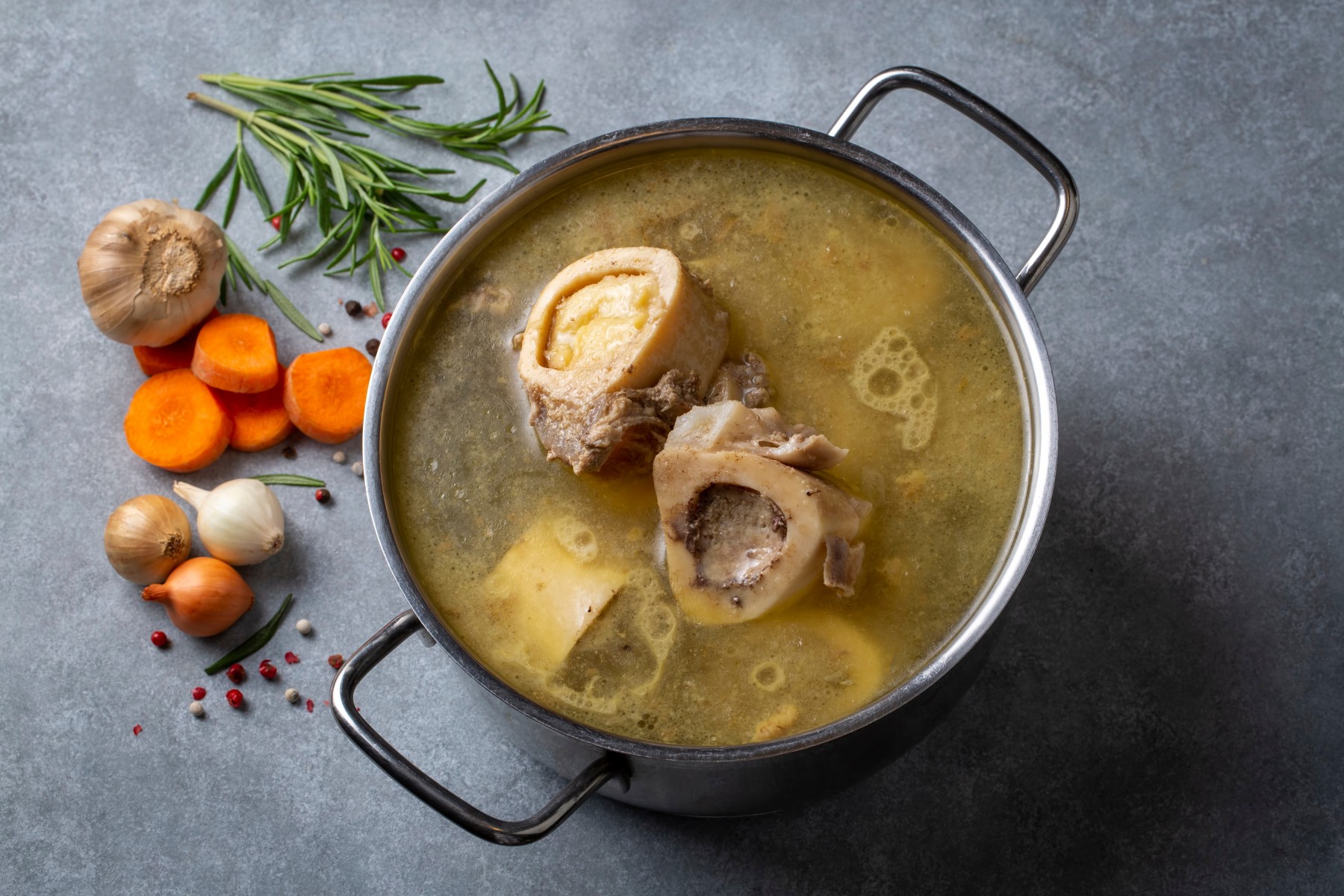In hot water over bone broth

From Gwyneth Paltrow to TikTokers, people are talking about a diet that includes intermittent fasting and a bone broth lunch. Some have been unhappy that influencers are promoting such a low-calorie diet.
So what is bone broth and is it really good for you?
“Bone broth is made by simmering bones from animals like from a rotisserie chicken or a bone in pork chop for several hours, up to 48 hours," says Emily Wozer, a dietetic intern with OSF HealthCare. "This is different from regular stocks and broths which are only simmered for about three to four hours. So it has bolder flavor, as well as more nutrients.”
In addition to chicken and pork, bone broth can be made from almost any animal including beef, veal, turkey, and fish. Bone broth is rich in minerals that build and strengthen bones. It also contains many other healthy nutrients, including vitamins, amino acids, and needed fatty acids.
Some people may find that bone broth improves their digestion, sleep, or helps with inflammation, however Wozer adds that it is important to note there is not enough research to support these claims or recommend bone broth to treat or improve health issues.
Experts are quick to point out, however, that bone broth is not a meal by itself. The recommended calorie intake for adult women ranges from 1,600 calories a day to 2,400 calories per day, according to the current Dietary Guidelines for Americans. For men, the recommendation is 2,200 to 3,200 calories each day.
“It's relatively low in calories, it has about 40 calories per cup and about nine grams of protein," says Wozer. "But this can vary a bit based on the recipe that you use, how long it simmered for, or even the brand that you buy, if you're purchasing it from the store.”
Instead, experts recommend incorporating bone broth into broth-based recipes such as vegetable stew, bean chili and minestrone soup.
“This is an ingredient that can be used as a base for soups or stews, but it's definitely not enough for a full meal," says Wozer. "We’d want to add some starch or grains, some vegetables and maybe even more protein and a source of healthy fats.”
Bone broth also doesn’t benefit someone who’s intermittent fasting, which has its own possible negative effects including fatigue, nausea, headaches and severe hunger. Wozer says if someone is experiencing serious hunger, the greater the risk to eat a lot more later on.
The bottom line, Wozer says, is that bone broth is beneficial, but its best consumed as an addition – and not a standalone – to your diet as a way to provide a range of health benefits.
“We definitely want to see more variety, more color, adding in those veggies, fruits, whole grains – things have more substance than a little bit of liquid.”
For more information on nutrition, visit OSF HealthCare.

